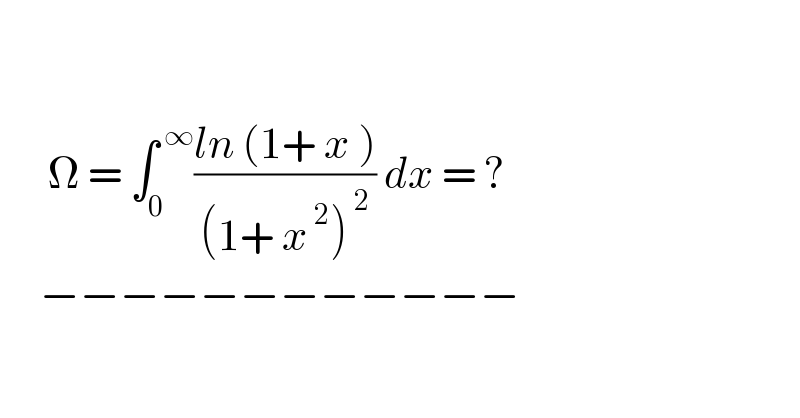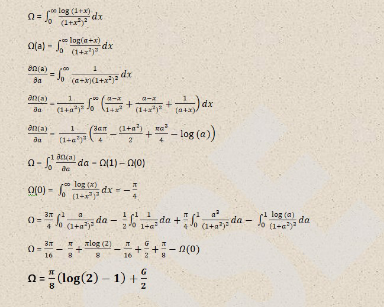Question Number 161076 by mnjuly1970 last updated on 11/Dec/21

$$ \\ $$$$ \\ $$$$\:\:\:\:\:\:\Omega\:=\:\int_{\mathrm{0}} ^{\:\infty} \frac{{ln}\:\left(\mathrm{1}+\:{x}\:\right)}{\left(\mathrm{1}+\:{x}^{\:\mathrm{2}} \right)^{\:\mathrm{2}} }\:{dx}\:=\:? \\ $$$$\:\:\:\:\:−−−−−−−−−−−− \\ $$$$\:\:\:\:\:\:\:\: \\ $$
Answered by Lordose last updated on 15/Dec/21

